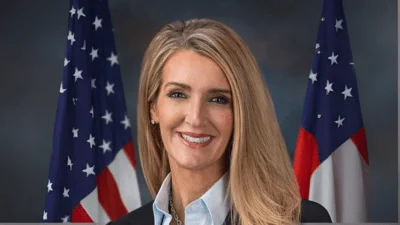Good morning. Today we welcome Ambassador Robert E. Lighthizer, United States Trade Representative to discuss U.S.-China Trade.
At the direction of the Trump Administration, there are currently U.S. tariffs on 250 billion dollars of Chinese imports. In retaliation, China has imposed tariffs on 110 billion dollars of U.S. exports. This hearing is our opportunity to make clear what Congress stands for on U.S.-China trade and what the American people need to see in any trade agreements - or M.O.U.s - that the Administration concludes with China.
At the outset, I want to acknowledge that Ambassador Lighthizer is still leading negotiations with China and that he may want to exercise discretion about the level of detail he gets into about the discussions. At the same time, I encourage Ambassador Lighthizer to be as forthcoming as possible.
I have often observed that there is truth to what everyone says about China: China has been good for some but also very bad for others.
In 2000, when Congress voted on normalizing trade relations with China, the promise was that China would reform and become market-based, democratic, and would respect human rights. But the China that we trade with and compete with today is very different from the one we hoped would emerge.
China’s economy, which has taken on some market characteristics, remains fundamentally state-directed. China’s companies, state-owned or not, are called upon to serve the government’s interests.
China’s trade and economic policies are coordinated through five-year and 10-year plans. Those plans are backed by China’s resources. They are aimed at fostering national champions, advancing China’s economic and technological ambitions, and ensuring full employment in China. And they are implemented at the expense of other economies, through the theft of others’ intellectual property, and without regard to the global trade rules or human or workers’ rights.
These are the structural economic challenges that American workers and companies face in trading and competing with China.
While this Administration confronts the same challenges with China that previous administrations faced, it has chosen to use tactics and tools that previous administrations - of both parties - did not. The Trump Administration tariffs have been sweeping, disruptive, controversial, and painful. The Administration’s promise is that its high-risk approach will yield high rewards.
My concern is that we are about to see the Administration use the same, ineffective playbook it used in the past.
Recall that in April 2017, President Trump met with President Xi at Mar-a-Lago, as part of a 100 Day Plan for a big China deal. The Commerce Secretary declared that the outcomes from that exercise represented “more than has been done in the whole history of U.S.-China relations on trade." Of course, when we examined the results of those negotiations, we found that China’s commitments were almost all repackaged commitments from previous negotiations. Others were commitments promising changes that China was already in the process of making.
In May of last year, a China trade negotiation seemed like it was about to lead to a package of large purchase commitments for commodities like soybeans and natural gas, along with aircraft. Those negotiations clearly were not leading to an adequate solution for the significant trade problems with China. So they were put on hold.
This time around, on Dec. 1, the President announced a 90-day period to fix our complex trade problems with China. As we near the finish line, we are hearing once again about very large purchase commitments for commodities like soybeans and natural gas, along with aircraft.
But there is a primary difference from the earlier negotiations with China: this time, Ambassador Lighthizer is at the helm. And Ambassador Lighthizer, your vision, which I very much support, is to secure changes from China regarding the structural problems that American workers and companies face in trading and competing with China.
This Administration has chosen to take the path of a high-risk confrontation with China. It must hold out for a good deal - a structural deal. The future of America’s economic prosperity is at stake.
And with that I will recognize the Ranking Member, Mr. Brady for an opening statement.









